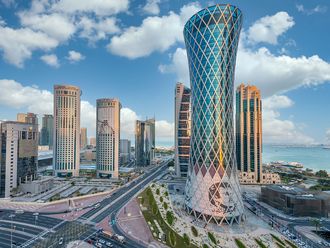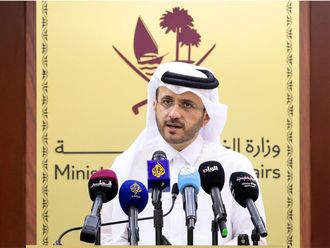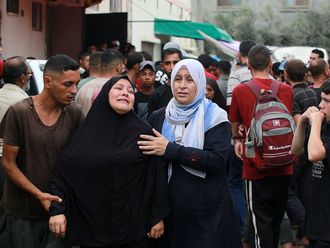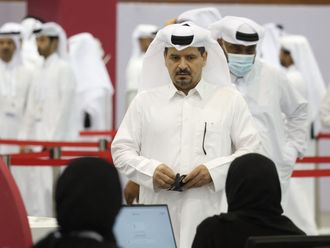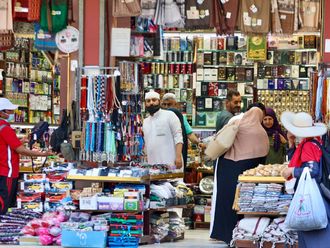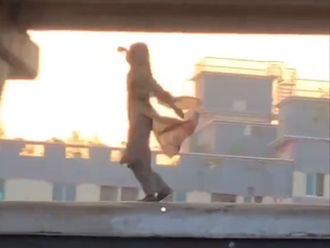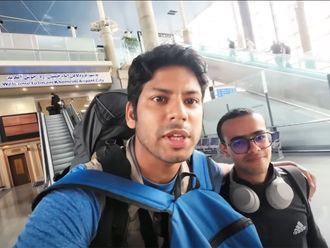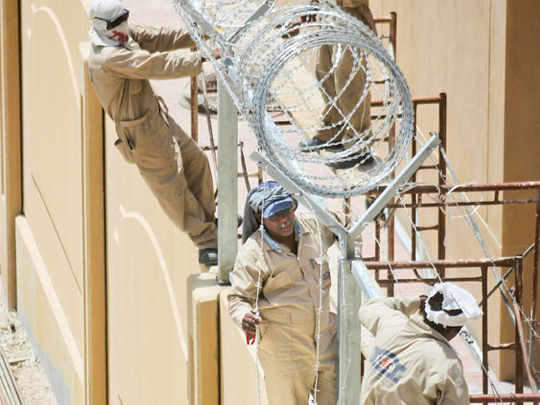
Doha: After the recent Human Rights Watch (HRW) report that showed how Qatar lacks some labour rights such as their ability to unionise, and how the sponsorship system is giving the employers too much power over them, Gulf News looked into the future of labour rights in Doha.
Workers all over the world are known with their unions and organised movements. But in Qatar they can be penalised with dismissal and could be deported from Qatar and sometimes the whole Gulf if theyr form any unions.
In a movement to help workers in Doha, human rights activists met the Labour Minister in the second week of June. They discussed a draft of a workers’ committees law and agreed to show the final draft to several human rights organisations to give them their comments.
That did not happen according to the International Trade Union Confederation (ITUC). “They are going on with their governmental plan with no regard to workers,” according to Sharan Burrow, ITUC General Secretary.
The ITUC showed deep concern in their report about workers rights and they said the governmental plan won’t do much to bring Qatar’s laws in conformance with international labour standards.
“Fifa have pledged to support real labour standards in building the 2022 World Cup. The international trade union movement will now move ahead with its global campaign — No World Cup Without Workers’ Rights.”
When Gulf News spoke with the Ministry of Labour officials, they assured that the law is not yet approved by the Emir. They refused to give details about the law and how it will exactly help workers.
“I do not care about laws or not, all I need is to get my salary on time, so I don’t have debts,” Malek H. said, a construction worker who is complaining that his employer delays his salary.
“Governmental organisations are very good and very respectful, I’d love to work there one day, but the private ones do not obey most of the rules, and that causes us many problems,” says Kumar R. a construction supervisor for a private contractor.
Labour activists think that a governmental committee is not the solution. “These are state-sponsored entities. Unions have to be independent from both the state and the bosses,” says Hossam Al Hamalawy, socialist activist and blogger.
Then if the workers’ committees are not enough for the workers, what are the options?
“The solution is allowing workers to form their independent unions that can represent the workers’ interests without interference from the state or the bosses. I don’t expect the Qatari government to “allow” it, so it’s up to the workers to win this right by industrial actions,” Al Hamalawy added.
“I don’t know if workers’ committees or unions will help, we barely have time to work, but of course it will be good if we can say our problems without fearing expulsion,” Kumar commented.
“As the great majority of workers are expatriates, direct action (strikes, walk-outs, occupations, etc.) aren’t guaranteed to succeed. One may think of pressure by the home countries of workers. They may agree together on issuing a joint demand of amending Qatari labour laws, or otherwise they would all stop permitting their citizens to work in Qatar,” Tamer Mowafy said to Gulf News, a Socialist Activist from Egypt.
Brazil 2014 World Cup is facing similar problems as many constructions, stadiums and roads have been delayed when workers had enough with the system and decided to organise a movement to get their rights. This movement led many strikes and demonstrations against the government demanding higher wages.
Such movement is what Qatar should try to avoid by co-operating with human rights organisations and labour activists to supply better wages and life standards to the workers, in order to keep the pace of the instruction development for the Fifa 2022 World Cup.
Qatar is now under the radar of all human rights and labour movements and it’s causing a lot of attention to the Gulf nation that didn’t have in previous events like 2006 Asian Games. Such attention might point out many faults in the sponsorship system that is being opposed by a number of organisations.
— Mostafa Sheshtawy is a journalist based in Qatar


